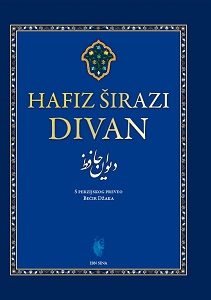
We kindly inform you that, as long as the subject affiliation of our 300.000+ articles is in progress, you might get unsufficient or no results on your third level or second level search. In this case, please broaden your search criteria.

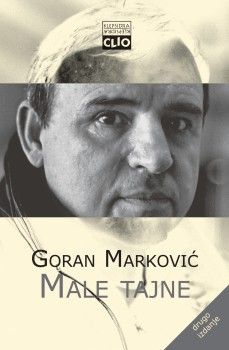
Oslanjajući se na stvarne događaje i ličnosti koji pripadaju jednom burnom periodu istorije Beograda i istorije jednog pozorišta, autor se, po sopstvenom priznanju, nije libio da ta zbivanja prekraja, izmešta iz vremena u kome su se odigrala, a da osobe koje su u njima učestvovale menja, kombinuje njihove osobine ili ih, jednostavno, izmišlja. Knjiga Male tajne počinje odlukom bogataša Petra Radovanovića, milionera, čija je supruga nestala u Bad Klajnkirhenu na skijanju, da osnuje pozorište. Njegov kraj, uz ispijanje šampanjca do jutra 6. aprila, gde na brokatnom čaršavu, dok padaju bombe na Beograd, stoje dve flaše Perrier – joueta i dve čaše, puna za nestalu suprugu i jedna iz koje je pio, kao da je slika iz literature, a ne iz života…Čitaocu će se neizostavno nametnuti pitanje: Da li je Petar Radovanović postojao? I da li je ikada ispijen taj šampanjac?
More...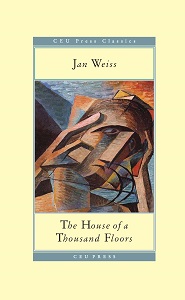
A man with no memory wakes up on the deserted staircase of a gigantic building. Gradually he learns about his identity and mission: he is Petr Brok, a detective sent to rescue Tamara, the princess kidnapped by the ruler of the monstrous Mullerdom, the house of a thousand floors. Ohisver Muller is a ruthless tyrant with many faces, eyes and ears in the most remote corners of his empire. But a revolution is spreading through the floors. Yet Petr Brok soon realises that, parallel to his Mullerdom adventure, he is living another life into which he keeps drifting against his will. What is dream and what reality? What is the flickering light inside a skull he sees in the darkness? And what is Mullerdom, a nightmarish reality or a figment of a fevered imagination, an allegory of the capitalist world or a dystopian vision of the future? With its humanistic message and imaginative power, Weiss’s The House of a Thousand Floors, first published in 1929, is a masterpiece of many genres, both unconventional and still contemporary, that has withstood the test of time for close to a century now.
More...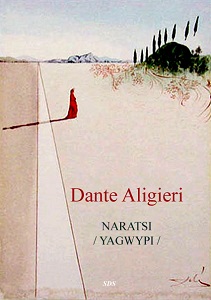
First translation of the Romany language of the classic work of Dante Alighieri`s "Inferno".
More...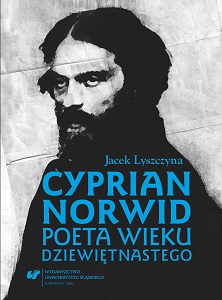
The book Cyprian Norwid. A Poet of the Nineteenth Century is first and foremost devoted to Norwid’s poetic oeuvre. For the author of the monograph, a major point of contention remains treating Norwid mainly as a brilliant philosopher and theologian, which has lately become quite customary. The monograph addresses the issue of Norwid’s belonging to a particular literary period: until not so long ago, it seemed obvious to everyone that he was a Romantic, and this view has only recently been challenged. Hence the title of the book – indicating the complexity of the Norwid phenomenon, the poet whose output cannot be contained within a single artistic movement and who, therefore, needs to be studied through a prism of the “nineteenth-century-ness” concept that has been advanced in the recent years.
More...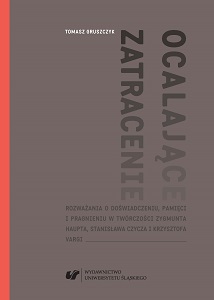
The thesis consists of three parts. Each of them is divided into separate chapters devoted to particular authors. The composition of those chapters is determined by the level of representativeness of a particular issue in a particular prose text. Therefore, in the first part, dedicated to the strategy and fragment poetics, the author takes into consideration their updating firstly in the works of Krzysztof Varga, then of Zygmunt Haupt, and finally, of Stanisław Czycz.Reaching back to the past and the rise of importance of individual experience of loss constitute the axis around which the considerations are developed in the second part. It opens up with issues concerning brooding as a particular way of being in Haupt’s prose. Also, the fragments of Czycz’s short stories which are the trace of cherishing of a particular loss in the narrative are marked and discussed. In Varga’s prose, the author attempts to save the myth of the past, instead of the past itself.In the third part, the questions about the status and the way of being of the authorial subject are raised, as well as about conceptions of subjectivity in the works of Haupt, Czycz and Varga.The considerations proposed in the thesis, concerning the prose of the three different authors refer to thinking about literature in terms of both performance and representation. Each careful reading of a literary work understood in these terms should subsume not only what is represented, but also the act itself as well as the fact of representing. Then the text is understood, or imagined, as a scene from which a voice is heard. This is a phenomenon of the very communication, of the contact itself, whose symptom is all that is happening in the text and via the text itself on every formal and content level. In texts of those authors, the voice belongs to someone who can come into existence as the voice only. The identity of such a person, or rather his image, consists of life experience of the personal author, shreds of his biography, his consciousness, but also his unconsciousness, social and cultural norms, linguistic mechanisms and, finally, the literary tradition. The question about the “who” of this voice is in fact a question both about a particular, historical unit, but also about psychosocial, linguistic and literary norms and practices. Just such questions are posed from the scene of writing in this prose, while the specific answers are inscribed into the “I” field of this voice.Both the “who” of this voice and his “what” are to large extent powered by the experiences of the authors themselves. Characters who appear on the scene of writing have traits that are similar, or even identical with the traits that could be attributed to the people hidden under the names of the authors. Often enough, those characters point out to, or even declare, this similarity themselves. They narrate stories about themselves, about their past evoked by the power of their memory. By talking about it, they also talk about more or less conscious manners of shaping depictions of the past, about culturally determined mechanisms of not so much reproducing, but of producing it. They appear in texts as actors and narrators of the story. They will not refrain from speaking about that second activity. It gives them the semblance of authenticity, the semblance of being, but still this is just the semblance.The possibility of presence is undermined by the voice, which unceasingly performs the act of disillusion, being the act of disillusion itself. The way of its existence is paradoxical. It is not personal, or certainly, not only personal. It is a result of pure productivity of the act of writing, to be exact, of writing out, writing up and writing to show off. The voice says: I am here instead of; I mean something here because soand-so on the scene of writing is not able, or does not want to spring into existence as himself; By thus speaking and marking I am supplanting him here (that is the cynical voice of Czycz’s writing out). Some other time: I am not the voice of any individual, not even of a community, but a voice of collectiveness. I am not only the voice which presents, speaks about something, I am the voice of the dialogue itself (the dialogic voice of Haupt’s writing up). Finally: I am the voice of the scene itself, of writing, of representing” (the spectacular voice of Varga’s writing to show off).The voice attempts to head to its source, but the only thing it is left to do is to mark the source’s impossible presence. Literary marking and emulating in texts do not lead to any purpose (of retrieving what is lost, restoring the presence, establishing identity and expressing it in a complete work), as it is the purpose itself. That is why the author of the thesis states that in the prose of the authors mentioned above, the literary staging of the desire itself is effectuated. This desire renders any communication possible, which becomes here an act of summoning, corresponding with, and, as a result, saving only the remnants of what is not present or unavailable.The works of Haupt, Czycz and Varga are read as a project of the redeeming loss: occurring in the voice which comes from the scene of writing during the process of redeeming the remnants of a particular presence, by destroying and dispersing it in its literary articulation.
More...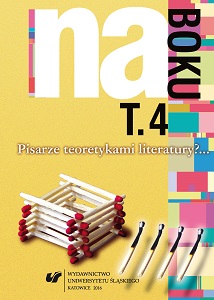
This volume is a continuation of a series Na boku (On the Side), which undertakes reflections on different ways of permeation of literary theory discourse with literary discourse in modern and postmodern Polish literature. In the following volume, the research area has been extended to the 19th century (represented by Henryk Sienkiewicz). The authors of these essays continue their search for writers’ statements about literature formulated beside strictly literary discourse (Zbigniew Herbert, Jacek Dukaj, and Henryk Sienkiewicz), but also subtly filtering into this discourse (Jan Zych, Stanisław Barańczak), or even engulfing it in its entirety (Joanna Bartoń, Piotr Goźliński, and Witold Gombrowicz). This volume also develops reflections initiated in the previous volume of this series concerning the literary output of career literary scholars, in which the theoretical language is being relocated from „on the side” to the center of literature (Zofia Mitosek). In the opening essay by Józef Olejniczak, a new understanding of the „on-the-sidedness” emerges, one which was absent from earlier volumes. It stems from the perception of change in the situation of theory-dominated literature. “Not longer than a few years ago, the standing of literature seemed to be unswerving. Today – if Olejniczak is to be believed – when theory rules, the position of literature is “on the side”. On the other hand, the works collected in this volume demonstrate that theoretical discourse still draws on literary discourse, albeit in the postmodern formation, it is the other way around – literary criticism discourse and literary theory discourse forerun literary texts” (from the editorial review by prof. dr hab. Anna Węgrzyniak).The following volume is addressed to the academia and post-middle school students interested in the humanities.
More...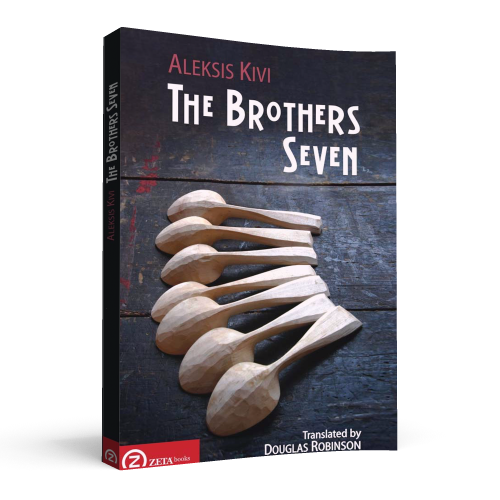
Seitsemän veljestä (The Brothers Seven), the 1870 Finnish novel by Aleksis Kivi (1834-1872), is one of the most (in)famously unknown classics of world literature—unknown not only because so few people in the world can read Finnish, but also because the novel is so incredibly difficult to translate, the Mount Everest of translating from Finnish. It is difficult to translate not only because it blends a saturation in Homer, Shakespeare, Dante, Cervantes, and the Bible with a brilliantly stylized form of local dialect, but because it is wild, grotesque, carnivalistic, and laugh-out-loud funny on every page. It has been translated 58 times into 34 languages—but somehow the translations always seem to fall short of their flamboyant original.Douglas Robinson’s new translation is a bold attempt to remedy that. He aims to make Kivi as rhythmic, as alliterative, as brash, as grotesque, and as funny in English as he is in Finnish. Since Kivi deliberately used an archaic Finnish, but used it playfully—and since Kivi was steeped in Shakespeare, to the point of memorizing whole plays—Robinson translates him into a playful Shakespearean register. As he notes in his Preface, this makes the translation a bit difficult to read—but the original is difficult for Finns to read as well, and the Finnish readers who love Kivi (and that is most of them) read him with pleasure despite the words they don’t know, because his prose is so intensely alive.
More...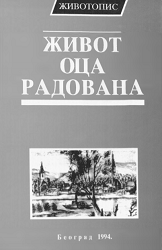
Моје родно место Сантово је село које је постало позиато по прелазу људи из римокатоличке у православпу вeру. To је било крајем девeтпаестога века. Раније је то било чисто шокачко село. А знаш ли ко су Шокци? To су исто Срби који су примили римокатоличку веру. Срби који су се касиије доселили у Сантово нису имали коме да се приклоне у верском погледу, јер тамо није било православне цркве. Тако су се и они полагано некако прилагодили Шокцима и римокатоличкој цркви. А већ моји родитељи припадају генерацији која се вратила на православиу веру. Моји дедови и баке су још били крштени у римокатоличкој цркви, али су касније и они прешли иа православље. У то време су почели градити садашњу православну цркву. Прво је била саграђена једна дашчара, црква од дасака, и она је служила док није завршена градња ове садашње. Та данашља је велика, лепа црква, грађена је за отприлике две хиљаде душа. А шта је био разлог тог враћања у православље? У оно време су сe почели насељавати Мађари у Сантово. Опи су тражили да се миса, то јест литургија, служи иа мађарском језику.
More...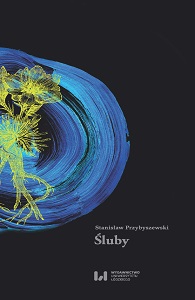
In his 1907 review in the Słowo Polskie daily published in Lwów, the Polish writer Kornel Makuszyński ventured a tentatively critical judgment on The Vows, suggesting that appropriate distancing might be prerequisite when evaluating Przybyszewski’s work. That condition seems to have been met today: the passing of over a hundred years since the original publication has created not only a temporal but also a cognitive distance. A re-edition of the play offers an opportunity to read it anew. The word “read” is key here, since The Vows is by all means a literary text.
More...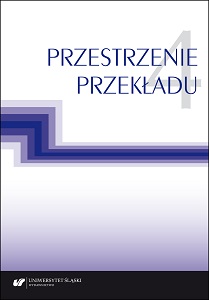
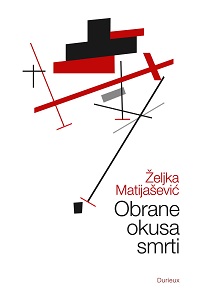
Into a loosely constructed love story, Željka Matijašević incorporates a dialogue between Id, Ego, and Super-Ego, and a quarrel between Freud, Jung and Lacan; an essayistic comparison of Julian Barnes and Gustave Flaubert, and many other, apparently, disparate elements. This hybrid novel was written as a structural homage to Barnes' Flaubert's Parrot. Plot-wise, it is a story about a couple who cannot realise their relationship. Mixing psychoanalytic theory with the ludic narration, Matijašević creates a wonderfully witty piece of writing. Željka Matijašević was born in 1968, in Zagreb. She graduated in Comparative Literature, and French Language and Literature at the Zagreb Faculty of Humanities and Social Sciences. She obtained her doctor's degree at the Trinity College of the Cambridge University. She is a full-professor at the Department of the Comparative Literature at the Zagreb Faculty of Humanities and Social Sciences. Her main interests are psychoanalytic theory and applied psychoanalysis. She is an author of six scientific books: Lacan: ustrajnost dijalektike (2005), Strukturiranje nesvjesnog: Freud i Lacan (2006), Uvod u psihoanalizu: Edip, Hamlet, Jekyll/Hyde (2011), Stoljeće krhkog sebstva: psihoanaliza, društvo, kultura (2016), Drama, drama (2020), and The Borderline Culture (2021). She also authored one novel, Defences with the Taste of Death (2019), and a lexicon Black Lymph/Green Heart: The Alternative Lexicon of Soul (2017). She is a member of La Fondation Européenne pour la Psychanalyse and the Croatian Writers Society.
More...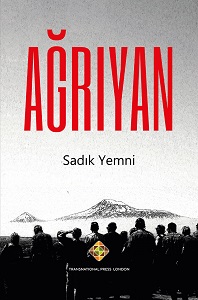
“New York korkunçtu Sarp.” Dedi Helga. “Çatışmalar, o çürümeyen cesetler ve çıplak ayaklı insanımsıların neden olduğu bunaltı. Çok ağır bir baskıydı. Paris ve İstanbul’a bakarak bütün dünya da aynı durumda denebilir. Ağrı’da bizi neyin beklediğini biliyor musun?” Ağrı dağından gelen bir sinyali araştırmak için oraya giden uluslarası bilim insanlarının içine sızmış fanatik bir grubun yaptığı sabotaj dünyanın çivisini çıkartır. Kitlesel yıkımı engellemenin tek yolu Ağrı dağında aktif durumda bulunan kötücül reaktörü çok geç olmadan durdurmaktır. Yazarın Muska, Yatır ve Öte Yer romanlarından tanıdığınız Sarp Sapmaz New York, Paris ve İstanbul’dan gelen beş kişiyle birlikte tehlikenin göbeğine dalar. Küresel ihtiraslar, kadim kurgu ve yapay zekâlar arası mücadele.
More...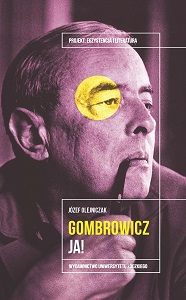
Witold Gombrowicz's biography covers four periods: 1. Childhood, youth and reaching a literary debut; 2. Debut (Pamiętnik z okresu dojrzewania, Ferdydurke, Iwona, księżniczka Burgunda) in interwar Warsaw; 3. Departure and emigrate to Argentina (Buenos Aires), where the novels were written Trans-Atlantyk, Pornografia i Kosmos (completed after returning to Europe), dramas Ślub, Operetka i Historia (finished after returning to Europe), (the last one was written in Argentina and despite attempts it was not finished, and the Operetka was started by Gombrowicz in Buenos Aires and finished in France) and Dziennik and Kronos; 4. The period after his return to Europe, first in West Berlin, as a consequence of the Ford Foundation scholarship, and later in France (Paris, Royaumont, Vence ‒ here Gombrowicz finished Kosmos, continued his work on the Dziennik, wrote a Testament and essays-talks Wspomnienia polskie and Wędrówki po Argentynie). The author focuses on the issues related to the literary subject and the discourse of Polishness inscribed in Gombrowicz's work. He adopted the order of the biography in which the author of Ferdydurke wrote his „traces of presence”, which is not an obvious order, because the order of the writer's biography was consciously violated in his work and burdened - also intentional - anachronism related to the space-time space of Pornografia and, in a sense, the Ślub . Witold Gombrowicz. I! It clearly refers to earlier ‒ scientific and fictional ‒ studies of Gombrowicz's biography, written by Jerzy Jarzębski and Klementyna Suchanow.
More...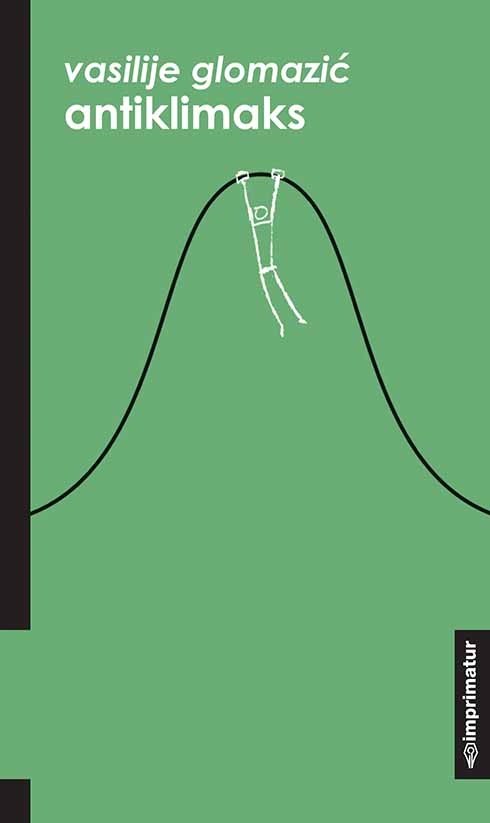
The talented Slobodan Karl lives and writes anticlimax. For fifteen years he has been trying desperately to write “the best novel in the world” by which he will cross the self-imposed limit and call himself a writer - a man who lives exclusively from writing. As a guide for weekend trips, he turns interesting ideas into weak endings, and in relation to people - impressive first impressions into disappointments. Slobodan is convinced that in order to turn his talent into success, he needs material security and time, which exist in his life as mutual exclusivity. Uncertain, he finds solace in superficial relationships. When his life is further complicated by the divorce and the condition of his son, Slobodan is ready to do what he can do best - write another average novel that no one needs, least of all. A chance meeting with Dušan Jadrančić, a self-proclaimed risk trader and a man of seemingly vague intentions, will initiate a series of emotional and structural changes in Slobodan that will bring him to the brink of success.
More...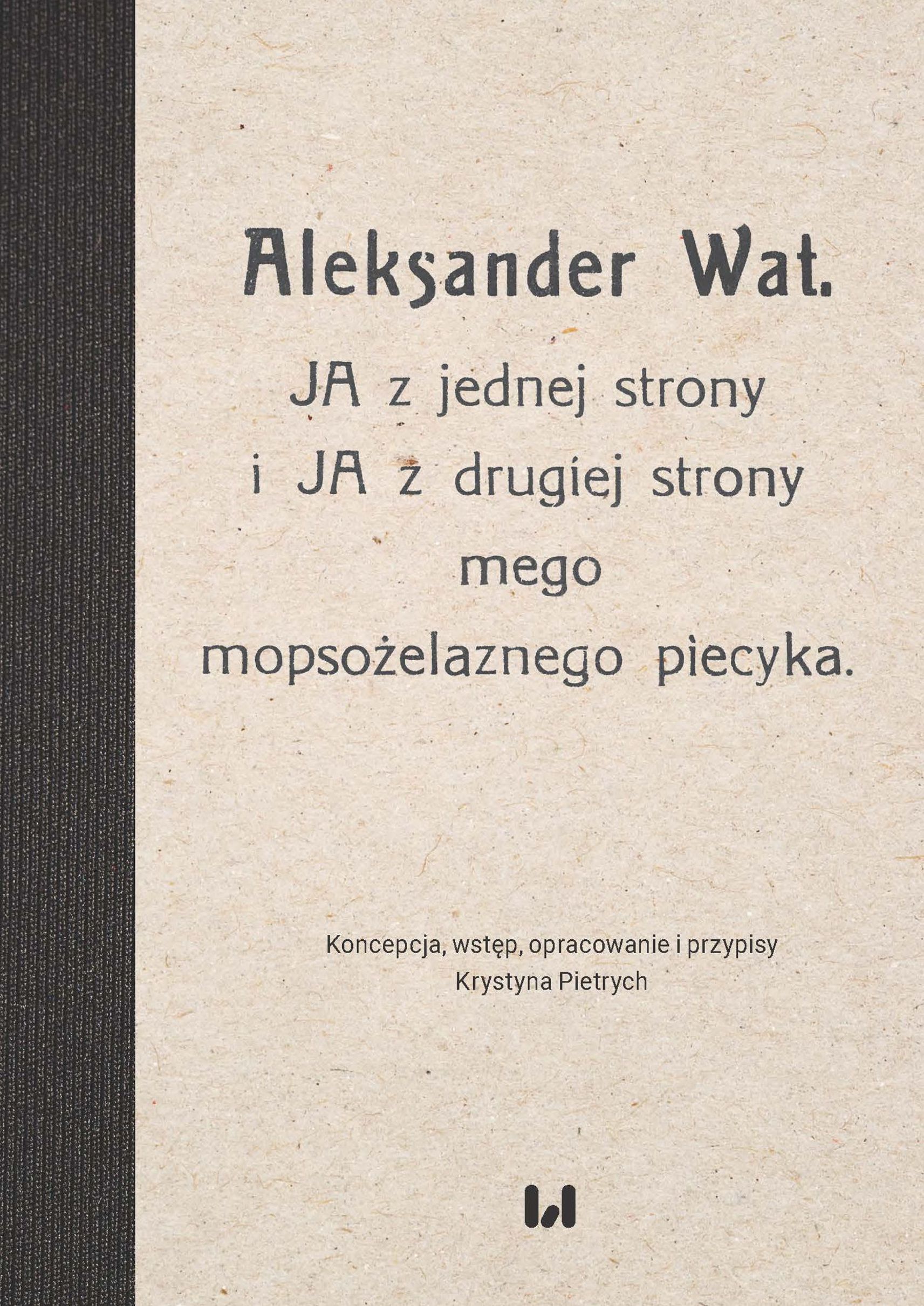
The publication, according to Krystyna Pietrych’s original concept, consists of the following parts: the introduction, Between Parody and Prophecy, presenting the most important interpretative tropes of the poem; facsimiles of Pug Iron Stove (JA z jednej strony i JA z drugiej strony mego mopsożelaznego piecyka) from 1920, a modernized edition of the Stove together with an editorial commentary and footnotes, the version of the poem published in Ciemne świecidło (1968), and the text A Bit on the “Stove” (Coś niecoś o “Piecyku”), which is Wat’s authorial commentary on the early work. Illustrations by Wojciech Grabowski provide a special complement to the whole work. They are the result of many years of the artist’s fascination with the extraordinary poem and a suggestion of its visual interpretation. The book as a whole offers a contextual and multifaceted reading of one of the most enigmatic texts of Polish Modernism.
More...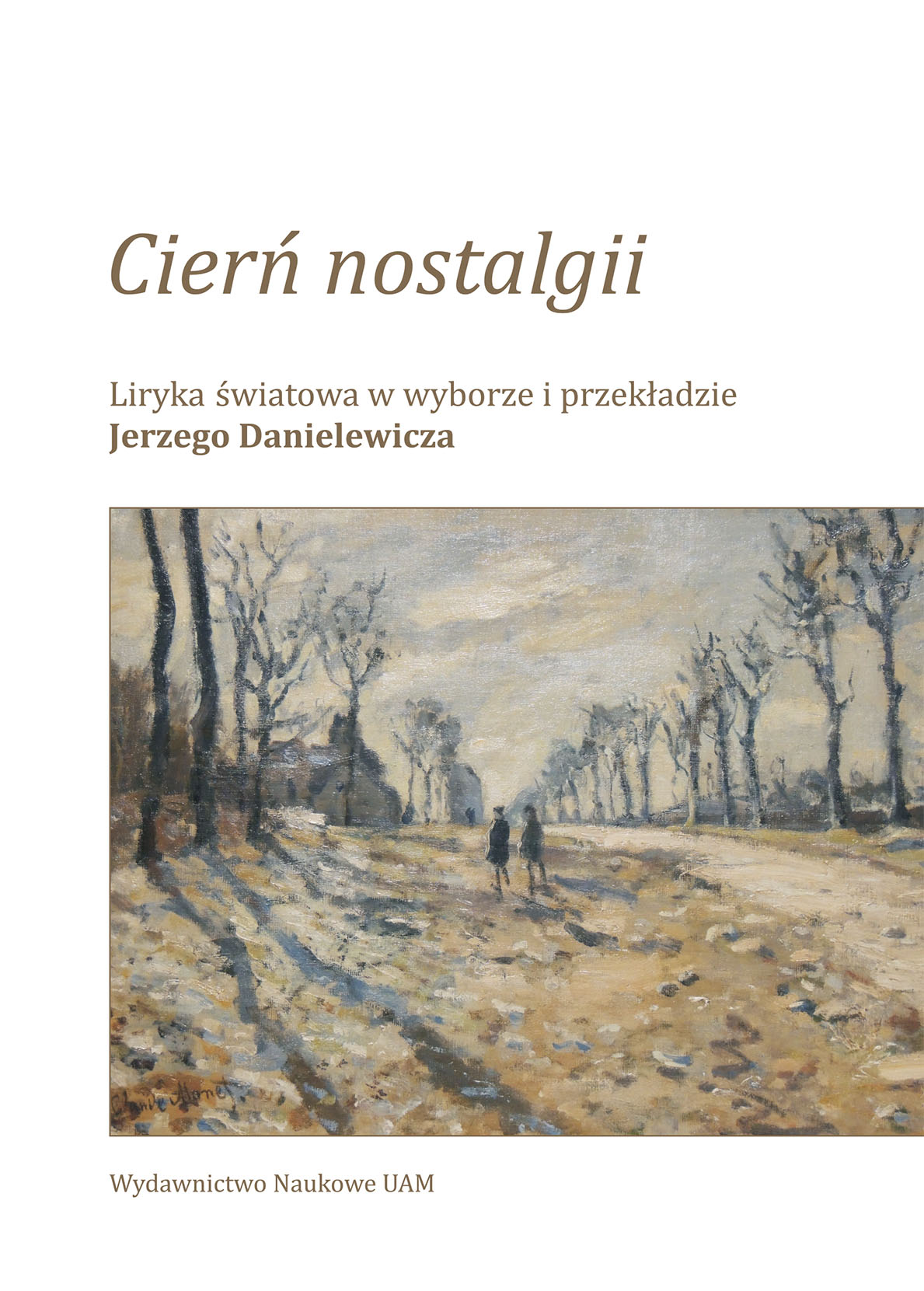
Cierń nostalgii (The Thorn of Nostalgia) is a unique anthology of world lyric poetry, containing poems about love, life and death written in different epochs and countries. What they have in common is reflection on the passing of time and the meaning of existence, a sense of the irreversibility of fate and melancholy. The original works are accompanied by translations by Jerzy Danielewicz. Collecting in one book similar thematically poems of about 80 poets writing in different languages and times (from the 7th century BC to the 3rd century AD and in the 13th-21st centuries) will certainly facilitate the access of poetry lovers to these not always easily accessible works, many of which deserve to be called masterpieces.
More...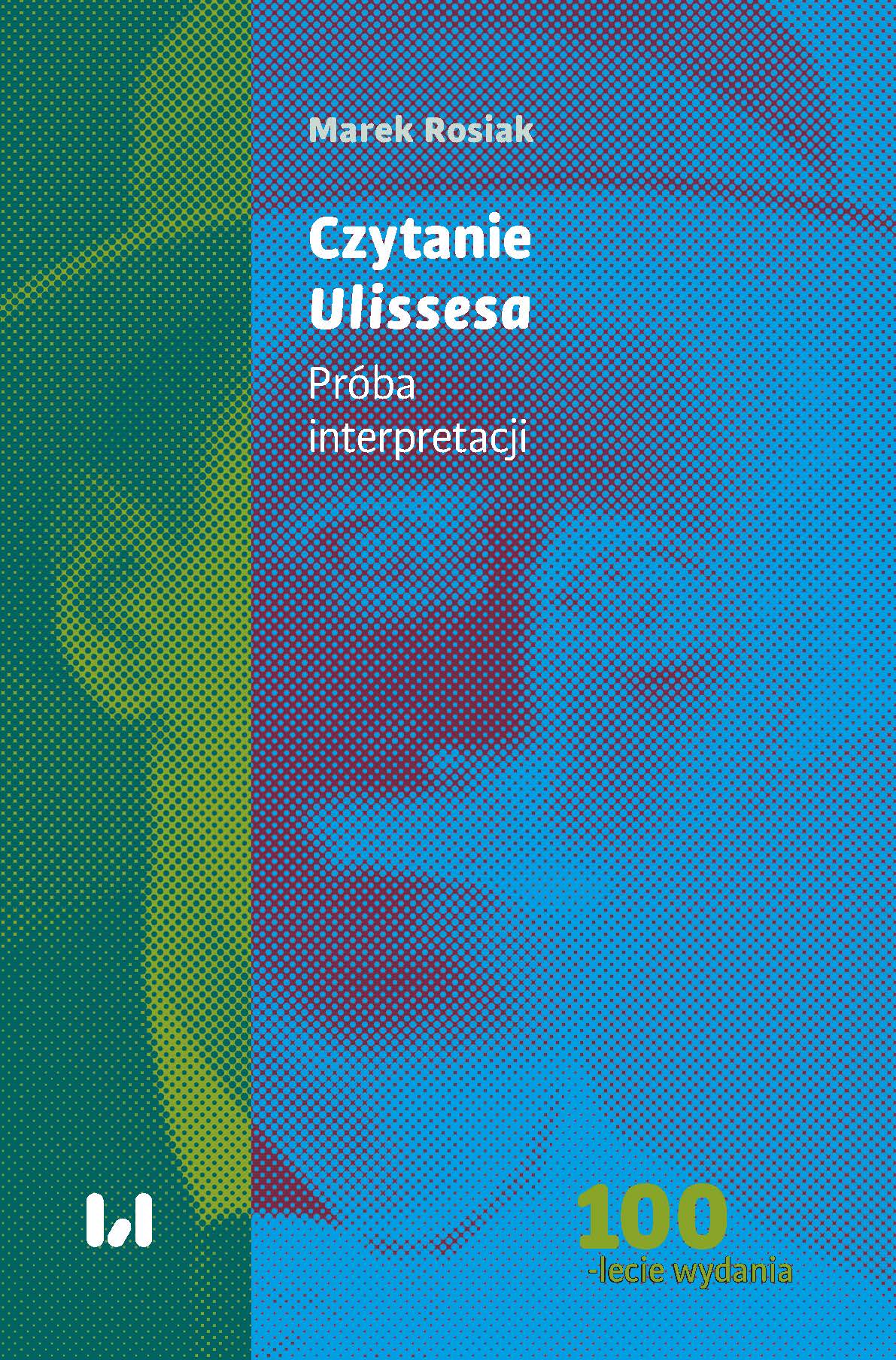
I have tried to apply analytical tools supplied by philosophy and logic to reveal or perhaps - to some extent - even create a consistent account of Joyce’s masterpiece. “Ulysses” contains no determinate meaning, even in a cryptic form – its author intention was rather to incline a patient reader to interpret the text and in this way to co-create its meaning. It is a demanding enterprise, not only because of the size of the book and often an opaque style of Joyce’s writing but also because he often seems to suggest certain paths of interpretation leading astray. For example, in spite of many openly blasphemous fragments the book contains some nontrivial theological threads. Its composition reveal certain logical order akin to a musical composition although at first glance it could remind a kind of a pathwork and so on. The epoch of radical social changes resulting in the Great War surely influenced the content of the novel.
More...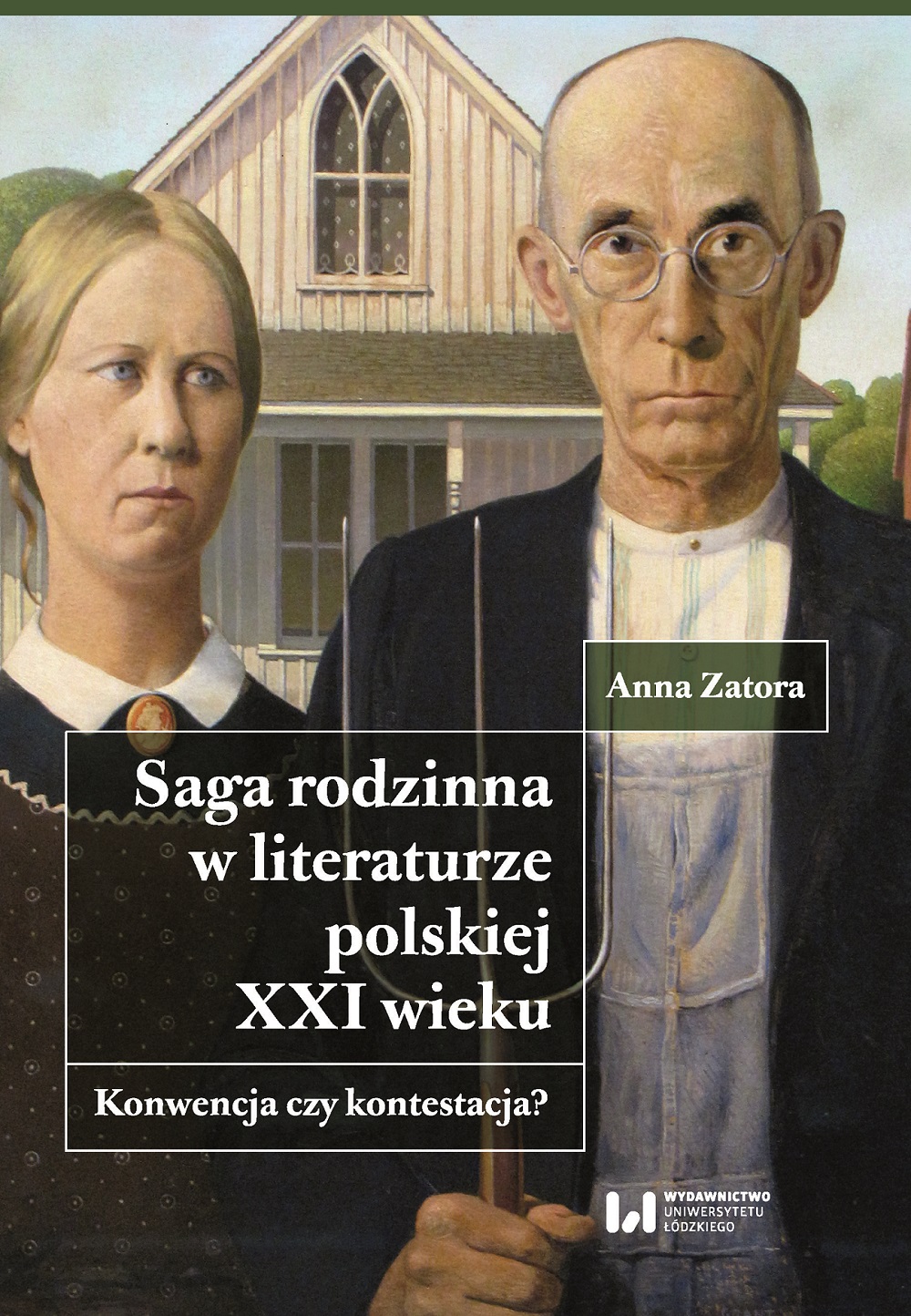
This publication redefines the family saga genre, confronting recent literary representations with the model of the traditional family novel, and explores the relationship between the evolution of the genre and transformations in the family model. Academic definitions of family saga (family novel) to date are inadequate to describe recent literary material, i.e., family-themed novels written in the early twenty-first century. Selected Polish literary works written between 2005 and 2015 were analyzed: Piaskowa Góra (Joanna Bator), Saturn (Jacek Dehnel), Stulecie Winnych (trilogy; Ałbena Grabowska), Dom na rozlewiskiem (trilogy; Małgorzata Kalicińska), Rodzina O. (Ewa Madeyska), Chochoły (Wit Szostak), Włoskie szpilki and Szum (Magdalena Tulli). This research points to two ways in which the genre has evolved: the first is a continuation of the traditional model of the family saga, and the literary representations belonging to it (conventional sagas) remain faithful to the model of the family developed at the time and reproduce most of the poetic elements; the second way in which the saga has evolved includes works (contestation sagas) that draw on the genological tradition but at the same time critically reinterpret it. In conclusion, it is proposed to introduce for such representations of family sagas the term "anti-saga" hitherto unfunctional in scientific discourse. The analysis of the literary material allows us to demonstrate a significant relationship between the development of cultural research and the evolution of the family model and the genre of the family saga.
More...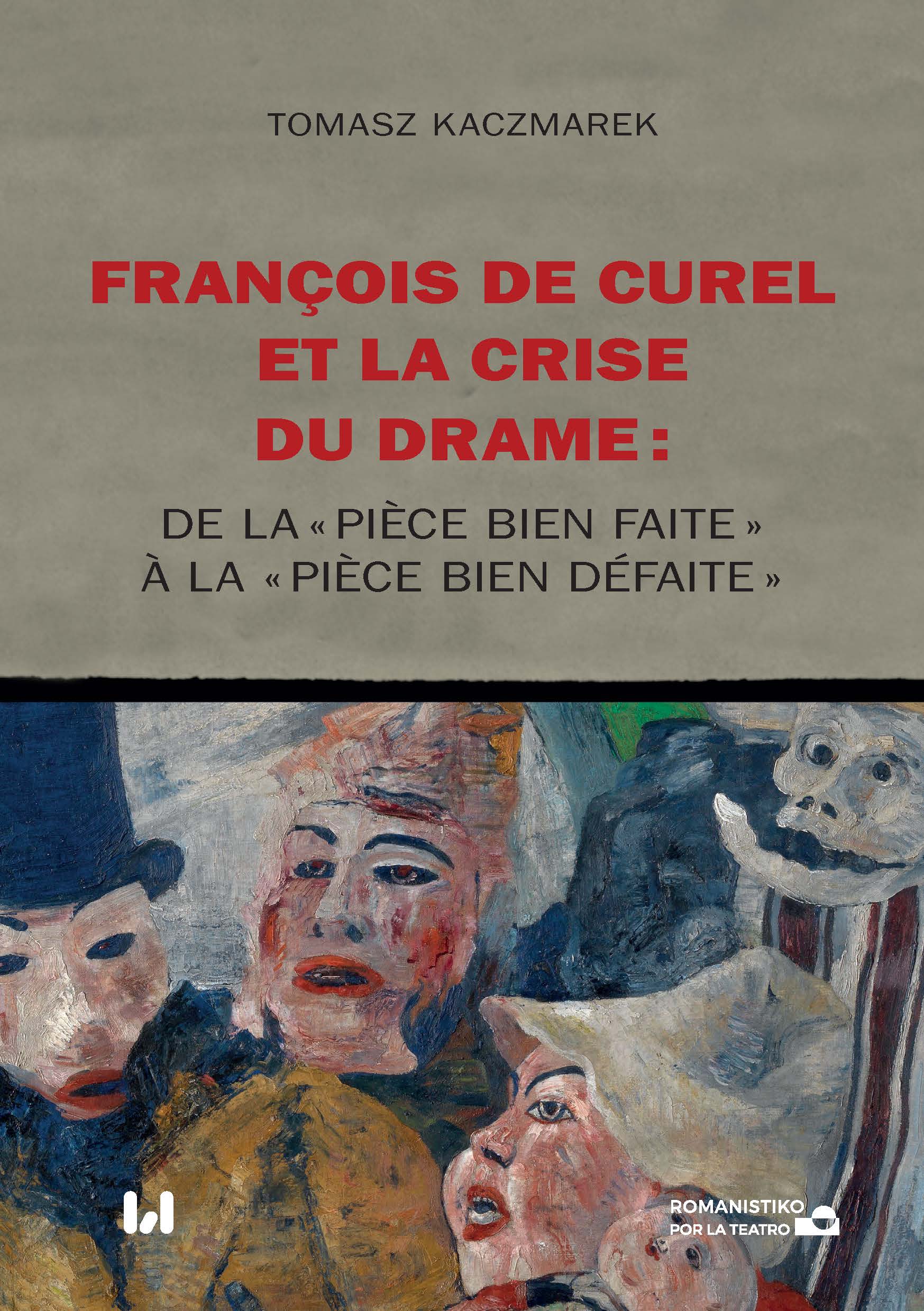
Curel’s works give tangible proof of a “rupture”, and not of a crisis of the drama, allowing the advent of a more open and free form ― in a word, more rhapsodic. It constitutes a departure from the traditional dramatic structure which is based on an ever-increasing tension that goes from the exposition through a myriad of adventures to the culmination of the action. As we remove the dynamic and logical attribute from it, the characters will not have their active function supposed to push the plot forward, either. In this context, the French playwright breaks the unity of time for the “benefit of temporal gaps between past and present” while emphasizing the drama experienced by the characters to the detriment of the agonistic action. It is in this way that these witnesses rather than agents of action no longer resemble acting heroes, but the unfortunate figures who incessantly and in an almost absolute passivity ruminate on their existential distress. Thus, “diegesis” replaces “mimesis”; plot progression being replaced by soul evolution.
More...